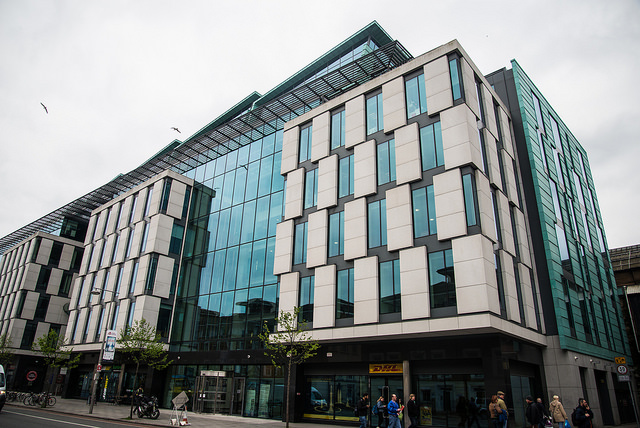Eight research projects in Trinity have been awarded over €2.1 million in government funding for continued research and innovation related to the coronavirus pandemic.
Ministers today announced a new €10.5 million investment across 39 research and innovation projects related to the coronavirus as part of the COVID-19 Rapid Response Research, Development and Innovation Programme.
The Trinity research projects receiving funding span fields of study from gerontology and genetics to digital media and online learning.
In a press statement, Minister for Higher Education Simon Harris said he was “delighted” to announce this latest funding.
“As we move closer to commencing a vaccination programme, we need to understand that the virus has not gone away – supporting our expert researchers in our higher education institutions will help us to safely reopen our society,” said Harris.
The research projects in Trinity can be broken down into ageing-related projects, immunology and genetics as it relates to the coronavirus, long-term effects of the coronavirus and how the pandemic has affected student engagement.
A project led by Prof Desmond O’Neill will examine how infection control in long-term care facilities can be improved without sacrificing the well-being and quality of life of residents and staff. The hope is that the research will inform the building of future facilities and facilitate retrofitting of existing buildings.
An additional project co-led by Trinity’s Dr Nollaig Bourke and University College Cork’s Dr Brian McSharry will look at whether elderly people’s responses to a coronavirus infection are affected by previous viral infections they have had.
“We encounter many viral infections throughout our lifespan and these can impact our health as we age and importantly, can change how your immune system responds when it encounters a new virus. This important determinant of anti-viral immunity has not previously been investigated regarding immunity to SARS-CoV-2,” said Bourke in a press statement.
Another defining factor of an individual’s response to a viral infection is their genome, and Trinity’s Prof Ross McManus is specifically looking at genetic variants in the Irish population that may be involved in responding to a coronavirus infection.
In collaboration with Ulster University’s Prof Tony Bjourson, the all-island project will “help us understand why we respond differently as individuals to the SARS-CoV-2 virus and which genes play outsize roles in fighting it,” said McManus in a press statement.
A more immediate approach to try and reduce coronavirus fatalities is another collaboration with Ulster University led by Dr Victoria McGilligan and Trinity’s Prof Kingston Mills. They are testing three different types of antibodies to try and reduce the harmful, overactive immune response sometimes triggered by coronavirus infection.
But in contrast to the extreme immune response of some people, others are naturally resistant to coronavirus infection despite never having had the disease before. This is what Trinity’s Prof Cliona O’Farrelly is trying to understand in her research project.
In a press statement, O’Farrelly described the project as “an exciting opportunity to identify people who are resistant to SARS-CoV-2 and to try to figure how their innate immune systems do that”.
As exciting as these projects are, the unfortunate reality is that over 76,000 people in Ireland have had the coronavirus according to Johns Hopkins University, and the physical, mental and social toll of the pandemic affects everyone whether they have personally been infected or not.
For recovering patients, fatigue lasting for weeks or months has been a commonly reported long-term symptom but is difficult to measure objectively. The TROPIC research project launched in Trinity led by Prof Roman Romero-Ortuno aims to clinically measure fatigue with greater accuracy to understand post-coronavirus fatigue and advise doctors accordingly.
Two studies are looking at social effects of the pandemic as well. “As a lecturer, a huge concern with online teaching is whether your students are truly engaged in a session,” said Dr Naoime Harte in a press statement. She is the lead researcher for a project that will use artificial intelligence to improve student engagement in online lectures by measuring markers of student interest during online classes.
For recent medical graduates in Ireland, the challenges of early professional development have been compounded by starting work amidst a global pandemic. Research led by Prof Martina Hennessy will look at the challenges these junior doctors have faced in hopes of improving the graduate-to-intern transition for future students.
“Being a junior doctor in a time of crisis presents challenges as well opportunities,” said Hennessy in a press statement. “We believe the increased numbers of interns and supervision will have affected interns’ integration into clinical practice, while the uncertainty of practice, workloads and patient outcomes may increase the stressors usually experienced at this important developmental phase of a doctor’s practice.”
The national funding programme is supported by Science Foundation Ireland, the Department for the Economy, the Department of Agriculture, Environment and Rural Affairs in Northern Ireland, the Irish Research Council and Health Research Board.







